- Online car rental since 2005
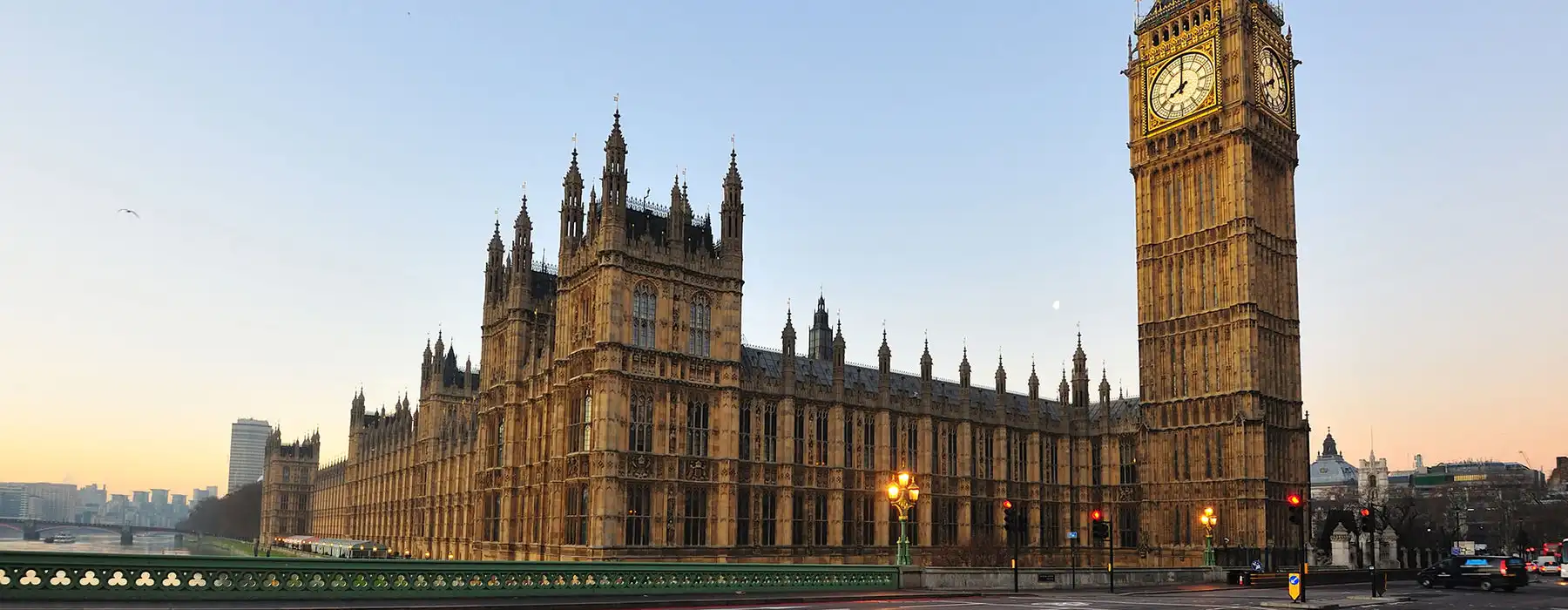
Car Rental United Kingdom
Save time and money. We compare the offers of car rental companies in United Kingdom on your behalf.
- Free cancellation Up to 48 hours prior to the scheduled pick up time
- Best price guarantee Have you found a better price? Let us know and we will make you a better offer.
- 24000+ pick-up locations Locations around the world

Car Rental United Kingdom
EasyTerra Car Rental United Kingdom is an independent car rental comparison site. Our system compares prices from well-known car rental companies so as a customer you can always reserve your car through us at a competitive rate.
Car rental offers in United Kingdom
Whether you're looking for a small rental car or a station wagon for the entire family, we will always have a suitable vehicle for the lowest price. Below are some examples from our selection in United Kingdom.

-
Green Motion From€ 8 /day -
Drivalia From€ 9 /day -
SurPrice car rentals From€ 10 /day

-
Green Motion From€ 8 /day -
SurPrice car rentals From€ 11 /day -
Alamo From€ 19 /day

-
Europcar From€ 17 /day -
Hertz From€ 24 /day -
Dollar Rent a Car From€ 24 /day

-
Europcar From€ 9 /day -
U-Save Auto Rental From€ 9 /day -
Hertz From€ 10 /day

-
Drivalia From€ 9 /day -
Green Motion From€ 11 /day

-
Budget From€ 18 /day -
Avis From€ 19 /day -
Europcar From€ 26 /day

-
Green Motion From€ 10 /day -
SurPrice car rentals From€ 10 /day -
Athol Car Hire From€ 57 /day

-
Green Motion From€ 11 /day

-
Budget From€ 21 /day

-
Green Motion From€ 8 /day -
Budget From€ 14 /day

-
U-Save Auto Rental From€ 9 /day -
Green Motion From€ 14 /day -
Budget From€ 14 /day

-
Europcar From€ 17 /day -
Avis From€ 19 /day -
Dollar Rent a Car From€ 24 /day

-
Drivalia From€ 10 /day -
SurPrice car rentals From€ 11 /day -
Sixt From€ 16 /day

-
Europcar From€ 10 /day -
SurPrice car rentals From€ 11 /day -
Alamo From€ 12 /day

-
Budget From€ 18 /day -
U-Save Auto Rental From€ 74 /day

-
Green Motion From€ 11 /day

-
SurPrice car rentals From€ 11 /day -
Budget From€ 15 /day -
Hertz From€ 17 /day

-
Budget From€ 19 /day -
Avis From€ 21 /day

-
Green Motion From€ 8 /day

-
Green Motion From€ 9 /day -
Drivalia From€ 12 /day -
SurPrice car rentals From€ 12 /day

-
Europcar From€ 18 /day -
Dollar Rent a Car From€ 34 /day

-
U-Save Auto Rental From€ 9 /day

-
U-Save Auto Rental From€ 9 /day -
Green Motion From€ 10 /day -
SurPrice car rentals From€ 12 /day

-
Europcar From€ 18 /day -
Avis From€ 20 /day

-
Green Motion From€ 10 /day -
Drivalia From€ 15 /day -
Alamo From€ 15 /day

-
Drivalia From€ 10 /day -
Sixt From€ 18 /day

-
Budget From€ 18 /day -
Avis From€ 20 /day

-
Green Motion From€ 11 /day -
Keddy By Europcar From€ 16 /day -
Enterprise From€ 19 /day

-
Green Motion From€ 11 /day -
Sixt From€ 22 /day

-
Europcar From€ 21 /day -
Keddy By Europcar From€ 91 /day

-
U-Save Auto Rental From€ 11 /day -
SurPrice car rentals From€ 14 /day -
Green Motion From€ 14 /day

-
U-Save Auto Rental From€ 11 /day -
Drivalia From€ 14 /day -
SurPrice car rentals From€ 17 /day

-
Budget From€ 21 /day -
Hertz From€ 29 /day

-
Green Motion From€ 12 /day

-
Green Motion From€ 13 /day

-
Budget From€ 21 /day -
U-Save Auto Rental From€ 101 /day

-
Green Motion From€ 13 /day -
Avis From€ 26 /day

-
Green Motion From€ 13 /day -
Avis From€ 75 /day -
SurPrice car rentals From€ 133 /day

-
Budget From€ 23 /day

-
SurPrice car rentals From€ 17 /day -
Green Motion From€ 25 /day -
Sixt From€ 30 /day

-
Green Motion From€ 18 /day -
Sixt From€ 30 /day -
Hertz From€ 97 /day

-
Hertz From€ 24 /day

-
Green Motion From€ 20 /day

-
Green Motion From€ 21 /day -
Sixt From€ 26 /day -
Avis From€ 26 /day

-
Europcar From€ 25 /day -
Budget From€ 28 /day -
Avis From€ 29 /day

-
Dollar Rent a Car From€ 22 /day -
Hertz From€ 25 /day

-
Dollar Rent a Car From€ 22 /day -
Hertz From€ 25 /day

-
Green Motion From€ 24 /day -
U-Save Auto Rental From€ 24 /day -
Keddy By Europcar From€ 38 /day

-
Green Motion From€ 25 /day -
Enterprise From€ 29 /day -
Sixt From€ 36 /day

-
Budget From€ 30 /day -
Hertz From€ 40 /day

-
Green Motion From€ 26 /day

-
Drivalia From€ 26 /day

-
Hertz From€ 30 /day -
Sixt From€ 37 /day -
Budget From€ 55 /day

-
Green Motion From€ 26 /day -
Drivalia From€ 32 /day -
SurPrice car rentals From€ 33 /day

-
Drivalia From€ 28 /day -
Avis From€ 31 /day -
Sixt From€ 36 /day

-
Hertz From€ 28 /day -
Drivalia From€ 28 /day -
Dollar Rent a Car From€ 30 /day

-
Dollar Rent a Car From€ 34 /day -
Europcar From€ 43 /day -
Sixt From€ 49 /day

-
Hertz From€ 29 /day -
Europcar From€ 41 /day

-
Drivalia From€ 30 /day

-
Avis From€ 35 /day

-
Hertz From€ 31 /day

-
Avis From€ 32 /day

-
Hertz From€ 36 /day

-
Green Motion From€ 11 /day -
Sixt From€ 21 /day

-
Green Motion From€ 11 /day -
U-Save Auto Rental From€ 14 /day -
Hertz From€ 23 /day

-
Hertz From€ 25 /day -
Sixt From€ 37 /day -
Avis From€ 79 /day

-
SurPrice car rentals From€ 14 /day -
Hertz From€ 23 /day -
Sixt From€ 25 /day

-
U-Save Auto Rental From€ 17 /day -
Green Motion From€ 25 /day -
Sixt From€ 30 /day

-
Sixt From€ 27 /day

-
Green Motion From€ 18 /day -
Sixt From€ 30 /day -
Hertz From€ 78 /day

-
Drivalia From€ 23 /day

-
Hertz From€ 29 /day -
U-Save Auto Rental From€ 106 /day

-
Enterprise From€ 28 /day -
Alamo From€ 28 /day -
National Car Rental From€ 49 /day

-
Green Motion From€ 35 /day -
Sixt From€ 65 /day

-
Hertz From€ 36 /day -
Sixt From€ 134 /day

-
Hertz From€ 35 /day -
Sixt From€ 49 /day -
Drivalia From€ 100 /day

-
Drivalia From€ 35 /day

-
Sixt From€ 45 /day -
Hertz From€ 49 /day

-
Drivalia From€ 38 /day -
Sixt From€ 38 /day -
Hertz From€ 41 /day

-
Sixt From€ 73 /day

-
Green Motion From€ 41 /day

-
Green Motion From€ 10 /day -
Alamo From€ 15 /day -
Budget From€ 16 /day

-
Green Motion From€ 11 /day -
Keddy By Europcar From€ 16 /day -
Enterprise From€ 19 /day

-
Europcar From€ 18 /day

-
Green Motion From€ 11 /day -
Drivalia From€ 12 /day -
SurPrice car rentals From€ 12 /day

-
Green Motion From€ 11 /day -
Sixt From€ 22 /day -
Drivalia From€ 24 /day

-
Budget From€ 18 /day

-
U-Save Auto Rental From€ 11 /day -
Drivalia From€ 14 /day -
Sixt From€ 26 /day

-
Green Motion From€ 13 /day -
Sixt From€ 28 /day -
Avis From€ 54 /day

-
Europcar From€ 21 /day -
Budget From€ 39 /day -
Keddy By Europcar From€ 91 /day

-
Green Motion From€ 11 /day

-
Green Motion From€ 12 /day

-
Budget From€ 21 /day -
Avis From€ 21 /day -
Hertz From€ 22 /day

-
Green Motion From€ 12 /day

-
Drivalia From€ 12 /day

-
Dollar Rent a Car From€ 22 /day -
Hertz From€ 25 /day

-
Drivalia From€ 13 /day -
Alamo From€ 14 /day -
Enterprise From€ 14 /day

-
Drivalia From€ 14 /day -
Europcar From€ 56 /day -
Keddy By Europcar From€ 83 /day

-
Budget From€ 23 /day
Popular cities in United Kingdom
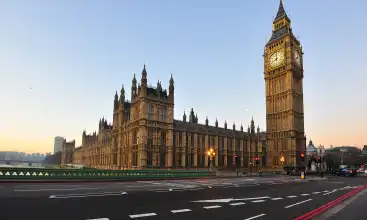
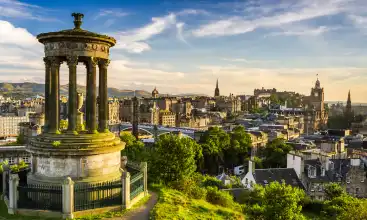
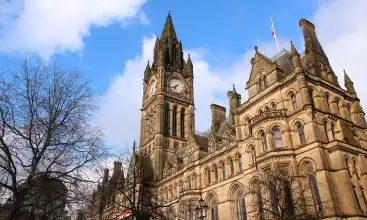
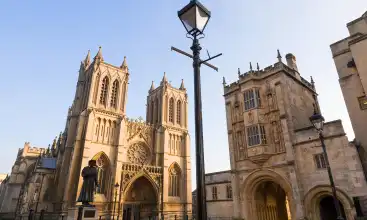
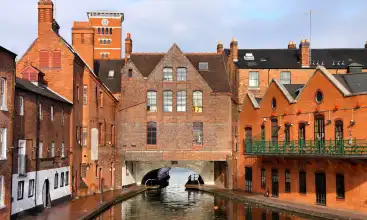
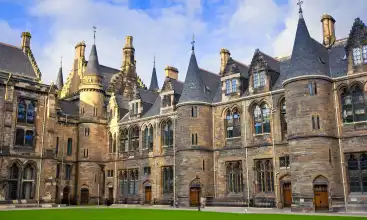
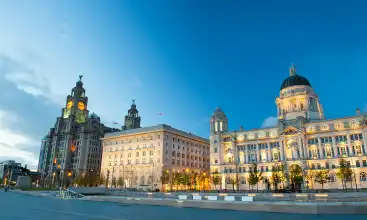
Popular rental locations in United Kingdom
-
Car Rental London Heathrow AirportFrom
€ 9 /day -
Car Rental Edinburgh AirportFrom
€ 9 /day -
Car Rental London Gatwick AirportFrom
€ 9 /day -
Car Rental Manchester AirportFrom
€ 9 /day -
Car Rental London Stansted AirportFrom
€ 9 /day -
Car Rental Bristol AirportFrom
€ 10 /day -
Car Rental London Luton AirportFrom
€ 9 /day -
Car Rental Birmingham AirportFrom
€ 11 /day
Useful tips for a well-prepared trip
Which insurance should I choose, and what's the deal with the deposit? Read our articles with useful information and tips to ensure you choose the right rental car for you.
Car rental locations in United Kingdom
EasyTerra Car Rental compares rental car prices at the following destinations

Location information for United Kingdom
United Kingdom is best explored by rental car. EasyTerra Car Rental has over 483 pick-up locations in United Kingdom. This means there is always a pick-up location close to your destination.
Most popular car hire locations in United Kingdom
Introduction
Great Britain includes England, Scotland and Wales. Together with Northern Ireland, Britain forms the United Kingdom. Each country has its own countenance. Scotland has rugged highlands. Wales has beautiful unspoilt countryside where hiking enthusiasts can feel completely at home. England has bustling cities like the metropolis London. Here are the famous double-decker busses, and you can visit Big Ben. There are also museums, castles and cathedrals everywhere. In short, Great Britain offers unprecedented opportunities for a wonderful driving holiday.
History
Around 50 AD, Great Britain was in the hands of the Romans. They called the island Britannia. In the fifth century Germanic folk (Angles, Saxons and Jutes) dissipated the Romans. These Germanic folk, also called the Anglo–Saxons, settled throughout the entire country.
Since the 9th century Danish and Vikings from Scandinavia tried to conquer Great Britain. In 1016 the Danish king Canute succeeded in becoming king of Great Britain as well. The country didn′t stay in the hands of the Danish for long. In 1066 William of Normandy conquered the British throne. He made sure that French became the official language. In 1216 Henry III ascended the throne. He was married to the French Eleanor of Provence and privileged her family. The nobles were in revolt against the royal power and demanded a parliament. It was Henry′s son, Edward who later summoned the first Parliament.
Edward III became king in 1327. He fought with his armies in Scotland and France. In 1337 he led the start of the Hundred Year War between Great Britain and France. This war lasted until 1453. It was a period of conflict, interspersed with truces between the kings of both countries. During the time of the war, the plaque (¨Black Death¨) also broke out. Nearly a third of the British population died. During the war with France, the English language was once again developed. In 1422 the nine year old Henry VI came into power after his father died. Although the English were still very powerful during the first years of Henry′s reign, Britain suffered a defeat in 1453 at the Battle of Castillon. This marked the end of the Hundred Years′ War.
The period from 1455 to 1485 is known as the period of the Rose War. This was an internal battle between two aristocratic parties: the Houses of Lancaster and York. After many murders Henry VII Tudor, far descended from the Lancasters, married Elizabeth of York. Thus the Civil War ended.
Elizabeth I ruled from 1558 to 1603. The country was reformed and the Anglican Church was founded. Great Britain flourished enormously in the years during Queen Elizabeth′s reign. After her death the Scottish king James IV came into power. This lead to the English Civil War (1642-1645).
The nineteenth century represents a highlight in the history of British political and economical power. Queen Victoria came into power and slavery was abolished. At the end of the nineteenth century, men received voting rights and several political workers parties were formed. Victoria also led to changes in the constitution where, amongst others, the equality of people was recognized.
In 1939 Great Britain, together with France, declared war on Germany. This was a reaction to the attacks from Hitler′s side. Great Britain fought in World War II, led by Winston Churchill. Despite the many deaths the allies managed to defeat Germany.
Labour won the first election after the war. The Workers Party made sure that there was national health care. Great Britain withdrew at that time from several colonial territories.
In 1961 the country joined the European Economic Community (EEC). Charles de Gaulle of France used his veto right on two occasions. Great Britain only succeeded to join the EEC in 1973. In 1979 the Conservatives won the election. Margaret Thatcher was the president of the Conservative Party. She was Prime Minister from 1979 to 1990.
In 1997 Tony Blair won the election with his Labour Party. He provided limited autonomy to Scotland and Wales. He was also responsible for negotiations with the parties in the conflict with Northern Ireland. Blair was prime minister until 2007 and was followed by Gordon Brown (also from the Labour Party).
Society and culture
Great Britain has about 60 million inhabitants. More than 80% of the British live in England. About 9% live in Scotland and the rest of the British population live in Wales and Northern Ireland. The British are descended from various nations who once inhabited the country. Thus descendants of the Celts, the Normans, the Anglo Saxons and the Vikings live there.
Although in principle freedom of religion exists, the Anglican Church is the established church of Great Britain. The king (or queen) must be a member of this church. About 27 million British are Anglican. In addition, there are many followers of the Catholic religion (9 million). A smaller percentage is Muslim, Presbyterian, Methodist or Jewish.
The official language of Great Britain is English. About 26% of Welsh inhabitants speak Welsh. In Scotland about 600,000 people speak Scottish.
The British culture is world famous. Especially British literature, music, theater and television programs people know everywhere. The British love cricket, soccer, golf and darts. Scotland is known for the kilt (a skirt for men) and the bagpipe (a special blow instrument). Scottish music is derived from the time of the Celts. Furthermore, Great Britain has castles, cathedrals and many museums with famous art collections.
Political situation
Great Britain is a constitutional monarchy. The queen is the head of state and the prime minister is the head of the government. The form of government is not enshrined in the constitution (which is exceptional). Queen Elizabeth is the current queen of Great Britain. In addition, she is also the head of state of, amongst others, Canada, Australia, New-Zealand and Jamaica.
Legislative power is in the hands of the government. This consists of the lower house (House of Commons) and the upper house (House of Lords). The House of Commons consists of 659 members elected every five years according to the constituency system. The House of Commons is the most important room. The House of Lords consists of representatives of churches and remaining members. The members are not elected, but inherit their title or are appointed.
Besides legislation, the parliament has some other important functions: to approve the budget, monitor policies and actions of the government, contribute to new proposals, and discuss important and topical issues. There are several British political parties. The Labour Party is socio-economic and has had a majority in the House of Commons since 1997. The Labour Party, the Conservative Party and the Liberal Democrats are the three major parties.
Scotland and Wales are both well represented in British politics. Scotland also has its own parliament. Wales has an elected assembly. British may vote from the age of eighteen on one member of the Lower House.
Economy
With London as one of the major financial centers, Great Britain plays an important role in global economics. The service sector is the most important for the British economy. No less than 75% of the working population is employed in this sector. Approximately a quarter of the working population work in the industry and a small percentage is employed in agriculture. England′s contribution to the GDP is by far the largest (85%). Scotland follows by over 8%. Only a small portion of the GDP is contributed by Wales and Ireland.
In industrial areas and downtown, unemployment is high. The total number of jobs in 2007 was 31.6 million. London has 4.7 million with the most jobs in the United Kingdom; Northern Ireland has the least jobs (834,000). Wages in London are no less than 30% higher than the rest of the UK. Yet the earnings in the country are generally good: the gross salaries in the UK are of the highest in Europe.
The United States is the main trading partner of Great Britain. Other important trading partners are Germany, France, The Netherlands, Ireland, Belgium, Spain and Italy. Important trading products are machinery, motor vehicles, electronics, paper products, clothes, food and other consumer goods.
Great Britain is a member of the EU, but has not (yet) imported the euro. The currency is the pound (GBP). A pound is 100 pennies.
Geography and climate
Great Britain includes England, Scotland and Wales. The country is surrounded by various seas: the North Sea (east), the Channel (south), the Irish Sea (west) and the Atlantic Ocean (north and west). The total surface area of Great Britain sums up to about 230,000 km². Of this, England has an area of approximately 130,400 km², Scotland of 78,800 km² and Wales of 20,800 km².
England has about 51 million inhabitants. The country consists mainly of lowland. The Parish Mountains, the Yorkshire Swamps, the Cumbria Mountains and Cornwall are some places that lie higher. The largest river of England is the Thames (336 km long). London is the capital city and most densely populated city of England. In neighborhoods like Chelsea and Kensington live more than 13,000 inhabitants per km². Other large English cities are Birmingham, Bradford, Liverpool, Leicester, Manchester and Wolverhampton.
Scotland has slightly more than 5 million inhabitants. It′s one of the least populated areas of Europe. About 80% of the Scottish population lives in the midlands (Central Belt) and in the industrial cities (Dundee, Edinburgh, Glasgow). The north of Scotland is characterized by high mountains. The Scottish Highlands consists mainly of peat and heath lands. Scotland has the highest mountain in Great Britain: the Ben Nevis (1344 m). Some large Scottish cities are the capital Edinburgh, Aberdeen, Dundee, Glasgow, Inverness, Stirling and Perth.
Wales has about 3 million inhabitants. The southern part of Wales is the most densely populated. There are also large cities, such as Cardiff (300,000), Swansea (190,000), Newport (134,000), Rhondda (68,000) and Port Talbot. The landscapes of Wales are mountainous (especially in the north and middle). The mountains in northern Wales are called Snowdonia. This area has been declared a national park. The south of Wales is characterized by treeless hills and long valleys. Three long rivers are the Dee, Severn and Wye.
Great Britain has a moderate maritime climate. The winters are generally mild and the summers are cool. The average temperature in the winter is five degrees; the average summer temperature is fifteen degrees. Precipitation falls throughout the year. The most rain falls in the west of Great Britain. In mountainous areas (such as Wales and Scotland) it can rain a lot. In the winter it snows here. In the east of Great Britain it rains the least. The Channel Islands and the south coast are sunny. The temperature there is also higher.
Traffic and infrastructure
Especially the urban, densely populated areas of Great Britain have a well developed road network. The English capital, London, is the central link in which dozens of roads to other cities and towns depart. There are A roads and B roads: A roads are modern roads between major cities and B roads are narrow roads in remote areas. Keep in mind that people in Great Britain drive on the left!
An economical way to travel through Great Britain is by bus. Busses depart from every large and medium sized city to virtually every place in the country. A bus ride is comfortable and you can see much of the country.
Great Britain also has an extended railway network and is even reachable by train via the Eurotunnel. The Eurotunnel runs under the Channel, connecting the towns Calais (France) and Folkestone. Fast trains leave from London to other cities. There are also slower regional trains that run to other places in the country. Not only England, but also Scotland and Wales can be well discovered by train. You can buy a rail pass with which you can travel several days consecutively (first or second class).
Great Britain may well be visited by air. British Airways is the English airline. Heathrow (in London) is the largest airport. Other major airports are London Gatwick Airport, Birmingham International Airport, Edinburgh Airport, Glasgow International Airport and Manchester Airport. There are no fewer than 33 British airports for domestic flights.
The Channel Islands are reachable by boat. The boats depart from Poole, Weymouth and Portsmouth. The most important British ports are found in London, Liverpool, Manchester, Southampton and Newcastle upon Tyne.
Food and drinks
Great Britain is known for the English breakfast. This is a hearty breakfast with fried sausages, bacon, eggs, toast with marmalade, baked beans, grilled tomatoes and fried mushrooms. With the breakfast coffee or tea with a dash of milk is drunk.
Another typical English meal is ‘high tea’. For the British aristocrats this was always an important moment of the day. Around four o′clock in the afternoon they have tea with many small snacks. Examples include muffins, scones, cakes, biscuits or sandwiches.
The British pubs are also world famous. The life of a Brit is unimaginable without a pub. It′s a place where you can eat and drink, but it′s also fun to sit all together. Beer is often drunk in the pubs. There are three different types of beer: lager, bitter and stout. Stout is the darkest beer an above all very bitter in taste. You must be at least eighteen to drink alcohol.
Other traditional dishes are Irish stew (a dish with steak, potatoes and carrot), fish and chips, lamb and beef dishes and various kinds of savory pies. You can also order other European dishes almost anywhere, such as pastas and rice dishes. Indian Take-Away’s are also found. Indian food can be eaten or picked up here. Usually the tip is included in the price.
Accommodation
Great Britain has many accommodation options. There are numerous hotels, holiday homes and apartments. Although there are sufficient camping sites, this is not a common way for tourists to overnight. The camp sites are generally of good quality. Tourists often choose a Bed & Breakfast. These are relatively cheap and found everywhere. A typical English breakfast is naturally included in the price. In Scotland, it′s possible to stay the night in small huts amidst beautiful surroundings. You can also choose a unique night in a historic farmhouse in Wales.
Time zone
The United Kingdom has a time zone GMT. In the summer the time zone is GMT +1. The summer time runs from March 26 to October 29.
External resources
For more information on Great Britain, we recommend Google and the following sources:
Practical information
-
CurrencyBritish pound
-
Driving directionLeft
-
City speed limit48 km/h
-
Freeway speed limit96 km/h
-
LanguageEnglish
-
Popular car categoryCompact
What most people want to know
The following questions and answers are a selection of the most popular questions. If you do not find the answer to your question, have a look at the Frequently Asked Questions page or contact us.
- Avis
- National Car Rental
- Enterprise
- Athol Car Hire
- Budget
- Europcar
- Alamo
- FireFly Car Rental
- Dollar Rent a Car
- Sixt
- Hertz
- Flizzr
- Thrifty
- Keddy By Europcar
- SurPrice car rentals
- Carwiz rent a car
- Drivalia
- Green Motion
- addCarRental
- InterRent
- Easirent
- U-Save Auto Rental
- ACE Rent A Car
- Routes
- City Inter-Rent
- McNicoll Vehicle Hire
- DRIVUS
- wheego
- Touring Cars
- McRent
- City Car Rent a Car
- Apollo Car Rental
- Your Rent
- First Car
- Alpha Car Hire
- Fleet Rent a car
- Goldcar


